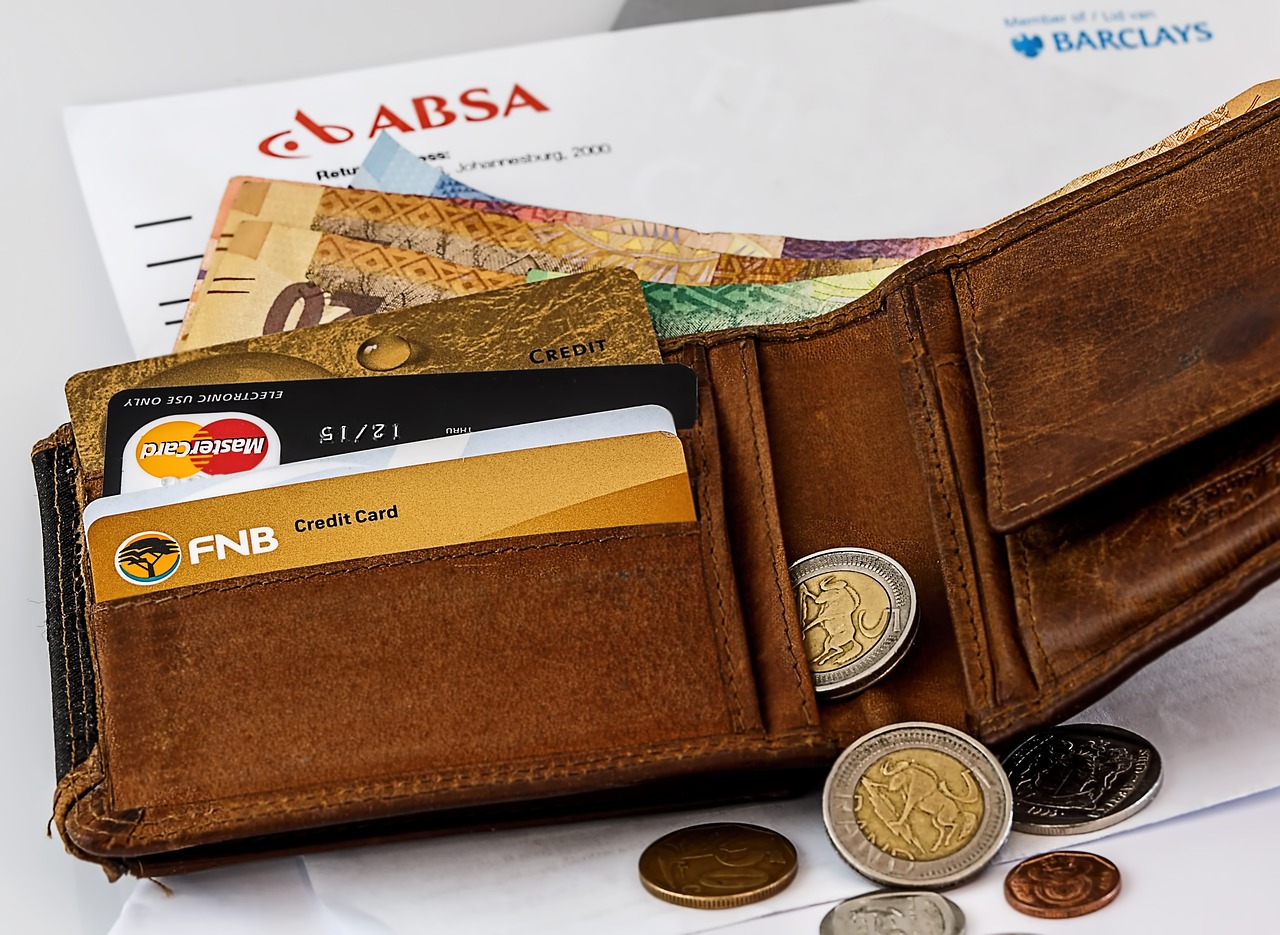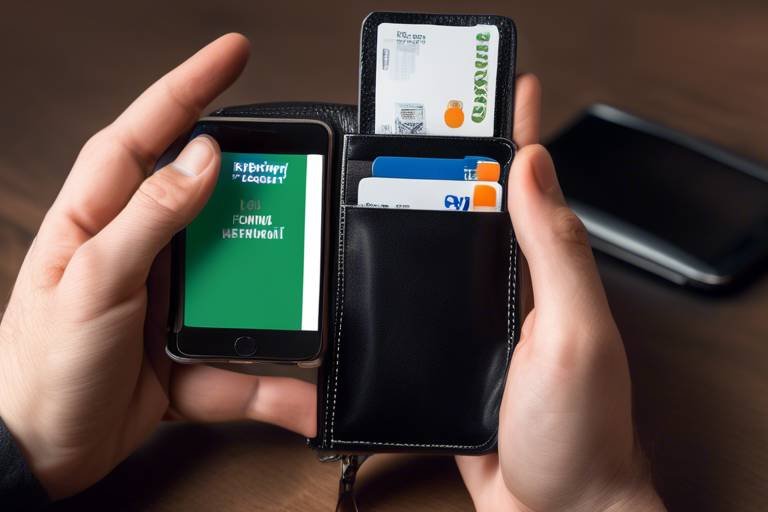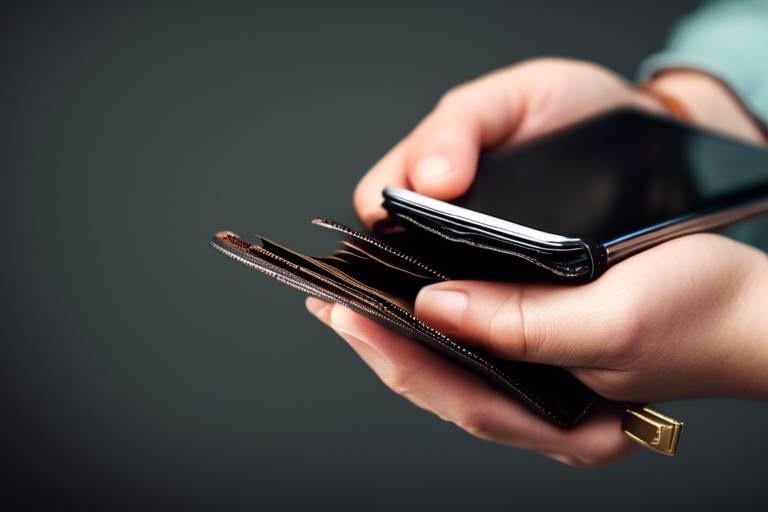Understanding the Limitations of Free Wallet Services
In the rapidly evolving world of digital finance, free wallet services have become a popular choice for individuals looking to manage their cryptocurrencies and digital assets without incurring costs. However, while the allure of "free" is undeniably appealing, it's crucial to peel back the layers and examine the underlying limitations that come with these services. Just like a shiny new toy that ultimately runs out of batteries, free wallet services can often leave users feeling frustrated and vulnerable. This article will explore the various constraints associated with these platforms, shedding light on potential security risks, functionality limitations, and the implications for users who rely on them for their financial transactions. After all, when it comes to managing your hard-earned money, it pays to be informed!
One of the most alarming aspects of free wallet services is their often inadequate security measures. Imagine leaving your front door wide open in a questionable neighborhood; that’s akin to storing your digital assets in a wallet that lacks robust protection. Many free wallet providers do not invest in advanced security protocols, making them prime targets for hackers and fraudsters. Users must remain vigilant and aware of these risks when choosing to store their digital assets in such wallets. A few common security risks include:
- Weak Encryption: Many free wallets use basic encryption techniques that can be easily breached.
- Lack of Two-Factor Authentication: Without this extra layer of security, your wallet is more susceptible to unauthorized access.
- Phishing Scams: Users may be tricked into providing their login credentials to malicious sites that mimic legitimate wallets.
While free wallet services may meet the basic needs of casual users, they often fall short for those who require more advanced features. Think of it like comparing a standard bicycle to a high-end mountain bike; the former gets you from point A to point B, but the latter offers a range of options for a smoother, more enjoyable ride. Free wallets typically offer limited functionality, which can include:
- Basic Transaction Features: Many free wallets only support simple transactions without advanced options like multi-signature capabilities.
- Limited Currency Support: Users may find that their wallet does not support a wide range of cryptocurrencies.
- No Customization: Unlike paid services, free wallets often lack personalization options, making them less user-friendly.
The user experience in free wallet services can often be a mixed bag, with many platforms featuring clunky interfaces that can leave users feeling lost. Imagine trying to navigate a maze without a map; that’s how frustrating it can be to use a poorly designed wallet. A subpar interface can lead to mistakes and confusion, which is the last thing you want when managing your finances. Additionally, the lack of intuitive design can deter new users from fully engaging with the service.
Another significant drawback of free wallet services is the minimal customer support they typically offer. When you're faced with an issue, the last thing you want is to be left hanging. Picture yourself in a crowded restaurant, desperately trying to get the attention of a waiter—frustrating, right? Many free wallet providers offer limited or no customer support, which can lead to feelings of helplessness for users facing technical difficulties or security concerns. It’s essential to know what to expect in terms of assistance before committing to a wallet service.
Furthermore, free wallet services often have restricted integration capabilities with other financial services. This limitation can impact your overall financial management, making it harder to track and manage your assets effectively. If you’re using multiple platforms for trading, investing, or even budgeting, a wallet that doesn’t play well with others can create a disjointed experience, much like trying to piece together a jigsaw puzzle with missing pieces.
While many free wallet services advertise themselves as cost-free, users should be wary of hidden fees that can sneak up on them like a surprise bill. These fees can manifest in various forms, such as transaction fees, withdrawal fees, or even fees for converting currencies. It’s essential to read the fine print and understand the cost structure of the wallet service to avoid unexpected charges that could eat into your assets.
Regulatory compliance is another area where free wallet services may fall short. Many of these platforms do not adhere to strict regulatory standards, posing potential legal risks for users. Just like driving a car without a license can lead to serious consequences, using a wallet that doesn’t comply with regulations can jeopardize your personal information and assets. Awareness of these compliance issues is critical for safeguarding your financial well-being.
Privacy concerns are prevalent with free wallet services, as user data may be collected and shared without consent. Imagine sharing your secrets with a friend, only to find out they’ve been broadcasting them to everyone—they're no longer a trustworthy confidant. Users must consider the implications of privacy when selecting a wallet, ensuring that their personal information remains secure and confidential.
Lastly, the sustainability of free wallet services is often uncertain. Many of these platforms may not have the resources to provide long-term support or updates, leaving users in a lurch when issues arise. It’s crucial to assess the long-term viability of these services to ensure continued access to your funds and services. After all, you wouldn’t want to invest in a sinking ship!
1. Are free wallet services safe to use?
While they can be convenient, free wallet services often lack the robust security features found in paid options, making them more vulnerable to hacking and fraud.
2. What features should I look for in a wallet?
Look for features such as strong encryption, two-factor authentication, multi-currency support, and responsive customer support.
3. How can I avoid hidden fees?
Carefully read the terms and conditions of the wallet service and be aware of any transaction or withdrawal fees that may apply.
4. What are the implications of using a non-compliant wallet?
Using a non-compliant wallet can expose you to legal risks and may jeopardize your personal information and assets.
5. How do I ensure my privacy is protected?
Choose a wallet that prioritizes user privacy and has clear policies regarding data collection and sharing.

Security Risks of Free Wallet Services
When it comes to managing your digital assets, the first thing that often comes to mind is security. Unfortunately, free wallet services can be a bit like a free lunch—there's usually a catch. These wallets often lack the robust security measures that paid services offer, making them a prime target for hackers and fraudsters. Imagine leaving your front door wide open because you think nothing will happen; that’s the kind of risk you take when you store your cryptocurrencies in a free wallet.
One of the most alarming security risks associated with free wallet services is the potential for hacking. Cybercriminals are constantly on the lookout for vulnerabilities in platforms that don't invest in high-level security protocols. Many free wallets do not implement two-factor authentication (2FA), encryption, or regular security audits, which are essential features for protecting your assets. Without these safeguards, your digital currency could be as easy to steal as a wallet left on a park bench.
Moreover, the lack of transparency in how these services operate can add another layer of risk. Since many free wallet providers are not regulated, users often have no idea how their data is being handled. Are they selling your information to third parties? Are they storing your passwords in plain text? These questions can keep you up at night. In fact, a recent study showed that over 60% of free wallet users were unaware of their service's security protocols, highlighting a significant gap in user education.
To illustrate the potential risks, consider the following table that outlines common security features and their availability in free versus paid wallet services:
| Security Feature | Free Wallet Services | Paid Wallet Services |
|---|---|---|
| Two-Factor Authentication (2FA) | Rarely Available | Commonly Available |
| Data Encryption | Limited | Standard |
| Regular Security Audits | Not Common | Conducted Regularly |
| Customer Support | Minimal | Comprehensive |
Additionally, the risk of phishing attacks is amplified with free wallet services. Since these services often lack direct customer support, users may find themselves vulnerable to scams that mimic legitimate wallet interfaces. A simple click on a malicious link could lead to the theft of your assets. It's like walking down a dark alley at night—you're taking a risk that could easily be avoided with a little caution.
In conclusion, while free wallet services may seem appealing due to their lack of fees, the security risks associated with them can be significant. It’s crucial for users to weigh the benefits against the potential dangers. Are you willing to gamble with your hard-earned assets? Understanding these risks is the first step toward making an informed decision about where to store your digital currency.

Limited Functionality Compared to Paid Services
When it comes to free wallet services, many users are often drawn in by the allure of no upfront costs. However, beneath that appealing surface lies a reality that can be quite limiting. Free wallet services typically offer a basic set of features that may not suffice for those who require more advanced functionalities. Imagine trying to navigate a vast ocean with a simple raft when you could have a sturdy yacht at your disposal. This analogy perfectly encapsulates the experience of using a free wallet versus a paid service.
For starters, free wallet services often lack essential features that are crucial for managing digital assets effectively. While they may allow you to send and receive cryptocurrencies, they often fall short in areas such as multi-currency support, advanced security protocols, and detailed transaction histories. For instance, if you're an investor who likes to dabble in various cryptocurrencies, you might find yourself limited to just a handful of options with a free wallet. This can be incredibly frustrating, especially when you want to diversify your portfolio.
Furthermore, the user interface of free wallet services can be quite clunky and unintuitive. Many users have reported difficulties in navigating these platforms, which can lead to mistakes when handling transactions. Customer experience should never be underestimated, as a seamless interface can make all the difference in managing your finances. In contrast, paid wallet services often invest in user-friendly designs that enhance usability, making it easier for users to perform transactions and access features.
Another significant limitation lies in the lack of integration capabilities with other financial services. Many free wallets do not support third-party integrations, which means you might miss out on valuable tools that can help manage your assets more effectively. For example, if you use a paid wallet service, you may have the option to integrate with tax software or trading platforms, streamlining your financial management process. Without these integrations, users relying on free wallets may find themselves juggling multiple platforms, which can be cumbersome and time-consuming.
To illustrate these differences, consider the following table that compares the functionalities of free wallet services versus paid services:
| Feature | Free Wallet Services | Paid Wallet Services |
|---|---|---|
| Multi-Currency Support | Limited | Extensive |
| User Interface | Clunky | Sleek and Intuitive |
| Integration with Other Services | Minimal | Comprehensive |
| Customer Support | Basic | 24/7 Support |
In summary, while free wallet services may seem appealing at first glance, their limited functionality can pose significant challenges for users. From basic features to user experience and integration capabilities, these wallets often leave much to be desired. As you weigh your options, consider what features are most important to you and whether a free wallet can truly meet your needs.
Q: Are free wallet services safe to use?
A: While some free wallet services implement basic security measures, they often lack the robust protections found in paid services, making them more vulnerable to hacking and fraud.
Q: What features should I look for in a wallet service?
A: Look for features such as multi-currency support, user-friendly interfaces, integration capabilities with other financial services, and strong customer support.
Q: Can I upgrade from a free wallet to a paid service later?
A: Yes, many wallet providers offer options to upgrade, allowing you to access more features as your needs grow.

User Experience and Interface Design
The user experience (UX) and interface design of free wallet services often leave much to be desired. Imagine walking into a store where the aisles are cluttered, the lighting is dim, and the staff is nowhere to be found. This chaotic atmosphere can be frustrating, right? Unfortunately, many free wallet services mirror this scenario. Users frequently encounter clunky interfaces that make navigating the platform a cumbersome task. A smooth, intuitive interface is essential for any financial application, as it directly affects how users interact with their digital assets.
One major issue is that these wallets often lack essential features that enhance usability. For instance, while some paid services offer advanced functionalities like customizable dashboards or intuitive transaction histories, free wallets may provide only the bare minimum. This can lead to a feeling of being lost in a digital maze, where finding the information you need becomes a quest rather than a simple task. Moreover, poor design choices can result in users making mistakes, such as sending funds to the wrong address or mismanaging their assets due to unclear instructions.
Another aspect to consider is the absence of adequate customer support. When users encounter issues—be it a transaction that didn't go through or a security concern—they often find themselves with limited options for assistance. This can lead to feelings of isolation and frustration, as they navigate problems without the guidance of a knowledgeable support team. In contrast, paid wallet services typically offer responsive customer support, ensuring that users feel secure and supported in their financial activities.
To illustrate the differences between free and paid wallet services regarding user experience, consider the following table:
| Feature | Free Wallet Services | Paid Wallet Services |
|---|---|---|
| Interface Design | Clunky, outdated | Modern, user-friendly |
| Customer Support | Minimal, often unavailable | Responsive, 24/7 |
| Advanced Features | Basic functionality | Comprehensive tools and features |
In essence, a well-designed user experience is vital for any digital wallet. It not only enhances usability but also fosters trust and confidence among users. When selecting a wallet, it's crucial to evaluate how the design and functionality align with your needs. After all, if you’re going to manage your finances through a digital platform, why not choose one that makes the process as smooth as possible?
- What should I look for in a wallet service? Look for user-friendly interfaces, strong security measures, and responsive customer support.
- Are free wallet services safe to use? While they can be convenient, they often lack robust security, so caution is advised.
- Can I upgrade from a free wallet service to a paid one? Yes, many services allow you to upgrade for enhanced features and support.

Customer Support Limitations
When it comes to using free wallet services, one of the most glaring issues is the limited customer support that these platforms offer. Imagine you’ve just made a significant transaction, and suddenly something goes wrong. You try to reach out for help, but you find yourself stuck in a maze of automated responses or, worse yet, no response at all. This scenario is not uncommon among users of free wallet services, where the expectation of quick and effective support is often dashed by the reality of minimal assistance.
Many free wallet providers operate on a shoestring budget, which means that customer support is often an afterthought. They might offer a help center filled with generic FAQs, but when it comes to specific issues, these resources can feel inadequate. Users frequently report long response times, if they receive a response at all. This can lead to a frustrating experience, especially when time is of the essence, such as when trying to recover lost funds or resolve security concerns.
Furthermore, the lack of direct communication channels—like phone support or live chat—can leave users feeling isolated. Instead of having a knowledgeable representative to guide them through their problems, they are often left to fend for themselves, searching forums or community boards for answers. This situation can be particularly daunting for those who are not tech-savvy or who may be new to digital wallets.
It's also important to note that the quality of support can vary significantly between different free wallet services. Some may have a more active community or better self-help resources, while others might leave users in the dark. Here’s a quick comparison of customer support features you might find:
| Wallet Service | Support Type | Response Time | Quality of Help |
|---|---|---|---|
| Wallet A | Email & FAQ | 24-48 hours | Basic |
| Wallet B | Email, FAQ & Forum | 48-72 hours | Moderate |
| Wallet C | Email, Live Chat | Immediate | High |
As you can see from the table, not all free wallet services are created equal. Some do offer better support options than others, but the majority still fall short of what users might expect from a paid service. This disparity can lead to significant stress for users who find themselves in a bind.
In summary, while free wallet services can be appealing due to their cost, the limitations in customer support can be a major drawback. Users should carefully consider their options and weigh the potential risks before relying solely on these platforms for their financial transactions. After all, in the world of digital finance, having reliable support can make all the difference.

Integration with Other Services
When it comes to managing your finances, the ability to integrate various services can make all the difference. Unfortunately, many free wallet services fall short in this area. Imagine trying to build a complex puzzle, but only having a few pieces that don't quite fit together. This is often the reality for users of free wallets, where integration with other financial platforms is either limited or non-existent.
For instance, if you are using a free wallet service, you might find it challenging to link your wallet with popular payment platforms, banking services, or even cryptocurrency exchanges. This lack of integration can lead to a fragmented financial experience, where you have to switch between multiple apps and services just to manage your funds effectively. It’s like trying to juggle too many balls at once—eventually, something is going to drop.
Moreover, many free wallets do not support advanced features such as automated transfers or real-time transaction tracking. This can be particularly frustrating for users who want to streamline their financial activities. You might find yourself wishing for a more comprehensive solution that allows you to manage all your assets in one place, rather than hopping from one service to another. It’s crucial to understand these limitations before committing to a wallet service.
In addition, the lack of integration can also affect your ability to effectively budget or analyze your spending. Without the ability to connect your wallet to budgeting tools or financial management apps, you might miss out on valuable insights that could help you make better financial decisions. Think of it this way: if your wallet can't communicate with your other financial tools, it's like trying to have a conversation in a room full of people speaking different languages.
To illustrate the differences in integration capabilities, consider the following table:
| Wallet Type | Integration with Payment Platforms | Integration with Banking Services | Integration with Financial Management Tools |
|---|---|---|---|
| Free Wallet | Limited | None | Minimal |
| Paid Wallet | Extensive | Full | Comprehensive |
This table clearly shows that while free wallet services may offer basic functionality, they often lack the robust integration options that many users need. If you are serious about managing your finances effectively, it might be worth considering a paid wallet service that offers these capabilities. In the long run, the convenience and efficiency gained from seamless integration could save you a lot of time and hassle.
In conclusion, the limitations of free wallet services in terms of integration with other financial services can significantly impact your overall financial management. As you weigh your options, consider how important these integrations are to your personal financial goals. After all, in the world of finance, having the right tools at your disposal can make all the difference.
- What are the main risks of using free wallet services? Free wallet services often lack strong security measures, making them susceptible to hacking and fraud.
- Can I use a free wallet for serious investments? While you can use them, it's advisable to consider the limitations and potential risks involved.
- Are there any hidden fees with free wallets? Yes, some free wallets may impose hidden fees on transactions, so it's essential to read the fine print.
- How do I know if a wallet service is compliant with regulations? Research the wallet provider's compliance history and look for reviews from other users.

Transaction Fees and Hidden Costs
When you think about "free" wallet services, it’s easy to get swept up in the excitement of no upfront costs. However, this often leads to a surprising reality: hidden fees can lurk just beneath the surface, waiting to catch users off guard. It's like finding out that a "free" lunch comes with a hefty tip you didn’t anticipate. Many wallet services may not charge you directly for using their platform, but that doesn’t mean you’re entirely off the hook. In fact, transaction fees can sneak in during various stages of your financial activities.
For instance, some wallets might impose fees for:
- Currency conversion
- Withdrawals to bank accounts
- Transfers between wallets
- Inactivity or maintenance
These fees can accumulate quickly, especially for users who frequently transact or withdraw funds. Imagine you’re sending money to a friend using a wallet that charges a 2% fee on every transfer. If you send $100, that’s $2 gone just like that! Over time, these seemingly small amounts can add up, leading to significant costs that could have been avoided with a more transparent service.
Moreover, some wallet services may advertise "no fees" but then impose hidden costs that are not immediately obvious. This can include higher exchange rates when converting currencies or fees that kick in after a certain threshold is reached. It’s crucial to read the fine print and understand all potential costs associated with your wallet service.
To illustrate this, let’s take a look at a simple comparison of transaction fees across different wallet services:
| Wallet Service | Transaction Fee | Withdrawal Fee | Currency Conversion Fee |
|---|---|---|---|
| Wallet A | 1.5% | $1.00 | 1.0% |
| Wallet B | 2.0% | $0.50 | 1.5% |
| Wallet C | No Fee | $2.00 | 2.0% |
This table highlights how even the most appealing "free" options can carry significant costs in other areas. Users should always perform due diligence and calculate the total cost of ownership when selecting a wallet service. It’s not just about the initial fee structure; it’s about the overall experience and the cumulative costs that can impact your finances in the long run.
In conclusion, while free wallet services may seem like a great deal, it’s essential to be vigilant about transaction fees and hidden costs. By doing your homework and understanding the full scope of potential charges, you can make a more informed decision that aligns with your financial goals.
- Are all free wallet services unreliable? Not necessarily. Some free wallet services are reputable, but it’s crucial to research their fee structures and security measures.
- Can I avoid hidden fees? Yes, by reading the terms and conditions carefully and comparing different wallet services, you can find options with transparent pricing.
- What should I look for in a wallet service? Look for security features, customer support, fee transparency, and user reviews to gauge reliability.

Regulatory Compliance Issues
When it comes to free wallet services, one of the most concerning aspects is their regulatory compliance. Many of these platforms operate in a gray area of legality, often avoiding the stringent regulations that govern financial transactions. This non-compliance can expose users to a range of legal risks, including the potential for fraud and loss of funds. Users should be aware that while their wallets may appear user-friendly and accessible, the underlying lack of compliance can lead to significant vulnerabilities.
Regulatory bodies around the world have established frameworks to protect consumers and ensure the integrity of financial transactions. Free wallet services, however, may not adhere to these frameworks, raising questions about their legitimacy. For instance, many of these services do not implement Know Your Customer (KYC) protocols, which are essential for verifying the identities of users and preventing money laundering. This absence of KYC can make it easier for malicious actors to exploit the system, putting honest users at risk.
Moreover, the lack of compliance with data protection regulations, such as the General Data Protection Regulation (GDPR) in Europe, can lead to unauthorized access to personal information. Users might unknowingly consent to their data being shared or sold to third parties, compromising their privacy and security. This is particularly concerning in a digital age where data breaches are increasingly common.
Understanding the implications of these compliance issues is crucial for anyone considering the use of free wallet services. Users should ask themselves:
- What measures are in place to protect my funds?
- How does the service handle my personal data?
- What recourse do I have if something goes wrong?
To help users navigate these waters, here’s a brief comparison of compliance features typically found in free wallet services versus paid ones:
| Feature | Free Wallet Services | Paid Wallet Services |
|---|---|---|
| KYC Compliance | Often absent | Mandatory |
| Data Protection | Limited | Comprehensive |
| Regulatory Oversight | Minimal | High |
| Customer Support | Basic | Dedicated |
In conclusion, while free wallet services may seem appealing due to their cost-effectiveness, the potential regulatory compliance issues can pose serious risks. Users must conduct thorough research and consider whether the convenience of a free service outweighs the risks associated with inadequate compliance. After all, when it comes to managing your finances, it’s better to be safe than sorry.
Q: What are the main risks of using a free wallet service?
A: The main risks include lack of regulatory compliance, inadequate security measures, and potential privacy breaches.
Q: How can I ensure that my wallet service is compliant?
A: Look for wallets that implement KYC protocols, have clear privacy policies, and are regulated by financial authorities.
Q: Are paid wallet services worth the investment?
A: Yes, paid wallet services often provide enhanced security, better customer support, and compliance with regulatory standards, making them a safer choice.

Impact on User Privacy
The when using free wallet services cannot be overstated. In a world where data is the new oil, your personal information becomes a valuable asset to companies. Free wallet services often monetize user data, which means that your transaction details, email addresses, and even your spending habits could be sold to third parties without your explicit consent. Imagine walking into a store and having your entire shopping history laid bare for everyone to see—that's how exposed you might feel when your data is mishandled.
Moreover, many of these services utilize tracking technologies to gather insights about user behavior. This tracking can lead to targeted advertisements, and while some may find this beneficial, it raises significant concerns about the extent of data collection. Are you comfortable knowing that your financial activities could be scrutinized and analyzed by advertisers? It's a valid concern, especially when you consider the potential for data breaches that could expose your sensitive information.
In addition to data collection, the privacy policies of free wallet services can often be vague and difficult to understand. Users may not fully grasp how their data is being used or shared. This lack of transparency can lead to a feeling of distrust. For example, a user might sign up for a free wallet service, only to discover later that their data has been sold to marketing firms. To illustrate this, consider the following table that outlines common privacy concerns associated with free wallet services:
| Privacy Concern | Description |
|---|---|
| Data Collection | Many free wallets collect extensive user data for advertising purposes. |
| Data Sharing | User data may be shared with third parties without user consent. |
| Lack of Transparency | Privacy policies are often vague, making it hard for users to know how their data is used. |
| Data Breaches | Free wallet services may not have strong security measures, increasing the risk of data breaches. |
Ultimately, users must weigh the convenience of using a free wallet against the potential risks to their privacy. It's essential to read the fine print and be aware of what you're signing up for. If your privacy is a priority, consider opting for services that prioritize user data protection and offer clear, transparent policies. After all, in the digital age, protecting your personal information is not just a choice; it's a necessity.
- What are the main privacy risks associated with free wallet services? Users may face risks such as data collection, data sharing with third parties, and lack of transparency in privacy policies.
- How can I protect my privacy when using a free wallet service? Always read the privacy policy, limit the amount of personal information you share, and consider using services that offer better data protection.
- Are there paid wallet services that offer better privacy? Yes, many paid wallet services prioritize user privacy and have strong security measures in place to protect your data.

Long-term Viability and Support
When it comes to free wallet services, one of the most pressing concerns is their . Imagine putting your hard-earned money into a wallet that could vanish overnight—sounds scary, right? This is the reality many users face when relying on free wallet platforms. Unlike paid services that often have the backing of established financial institutions, free wallets may lack the necessary resources to ensure their longevity. This raises a crucial question: how safe is your digital currency when the service provider might not be around tomorrow?
Many free wallet services operate on a model that doesn't guarantee ongoing support or updates. This can lead to issues such as outdated security protocols, which can leave users vulnerable to attacks. In fact, a study showed that over 60% of free wallet users experienced some form of service interruption or loss of access to their funds due to the instability of the platform. It's essential to consider whether the team behind a free wallet is committed to maintaining and improving their service.
Moreover, the lack of customer support can be a significant drawback. If a user encounters a problem—like being locked out of their account or facing a transaction error—what recourse do they have? Many free wallet services offer minimal support, often relying on community forums or FAQs to address user issues. This can be frustrating, especially for those who are not tech-savvy. In contrast, paid services usually provide dedicated customer support, ensuring that users can get help when they need it most.
To illustrate this point further, consider the following table that compares the support features of free versus paid wallet services:
| Feature | Free Wallet Services | Paid Wallet Services |
|---|---|---|
| Customer Support | Minimal, often community-based | 24/7 dedicated support |
| Updates and Maintenance | Infrequent | Regular updates and improvements |
| Security Protocols | Basic, may be outdated | Advanced, continuously monitored |
| Long-term Commitment | Uncertain | High, backed by financial institutions |
Another critical factor to consider is the regulatory environment surrounding free wallet services. Many of these platforms operate in a gray area, often avoiding stringent compliance measures that paid services adhere to. This can lead to legal implications for users, especially if the service is shut down or faces regulatory scrutiny. Imagine waking up one day to find that your wallet service has been deemed illegal, and all your assets are frozen or lost. It’s a nightmare scenario that could easily become a reality.
In summary, while free wallet services may seem appealing due to their lack of fees, the potential risks associated with their long-term viability and support cannot be ignored. Users should weigh these concerns carefully before committing their digital assets to such platforms. It might be worth investing a little more for a service that offers better security, support, and peace of mind. After all, when it comes to your finances, can you really afford to take chances?
- What are the main risks of using free wallet services? Free wallet services often lack robust security, may not provide adequate customer support, and could disappear without notice.
- Are there hidden fees in free wallet services? Yes, some free wallet services may impose hidden fees for transactions, so it's crucial to read the fine print.
- How can I ensure my digital assets are safe? Consider using a paid wallet service that offers better security features and customer support.
- What should I do if I encounter an issue with my wallet? Check if the service offers customer support; if not, look for community forums or FAQs for assistance.
Frequently Asked Questions
- What are the main security risks associated with free wallet services?
Free wallet services often lack the robust security measures that paid services provide. This makes them more vulnerable to hacking, fraud, and unauthorized access. Users should be cautious and consider whether the convenience of a free service outweighs the potential risks to their digital assets.
- How do free wallet services differ in functionality compared to paid ones?
Many free wallet services offer only basic features, which may not cater to the needs of advanced users. This can include limited transaction types, fewer supported cryptocurrencies, and lack of advanced security options. If you're looking for a comprehensive wallet solution, you might find these limitations frustrating.
- What can I expect regarding customer support from free wallet services?
Customer support for free wallet services is typically minimal. You might encounter long response times or lack of assistance altogether when issues arise. This can lead to significant frustration, especially if you need urgent help with a transaction or security concern.
- Are there hidden fees associated with free wallet services?
Even though they are advertised as free, some wallet services impose hidden fees on transactions. These can include fees for sending or receiving funds, currency conversion, or other services. It's crucial to read the fine print and understand any potential costs to avoid surprises.
- How do free wallet services handle user privacy?
Privacy is a significant concern with free wallet services, as they may collect and share user data. This could include transaction history or personal information. Users should carefully consider the privacy policies of these services to ensure their data is handled appropriately.
- What are the long-term viability concerns for free wallet services?
The sustainability of free wallet services can be uncertain. They may not have the same financial backing or resources as paid services, which could lead to service discontinuation or loss of access to funds. Users should assess the reliability of these platforms before committing their assets.
- Can I integrate free wallet services with other financial platforms?
Integration capabilities with other financial services may be limited in free wallets. This can hinder your overall financial management and make it difficult to track your assets across different platforms. It's important to evaluate how these limitations affect your financial strategy.



















